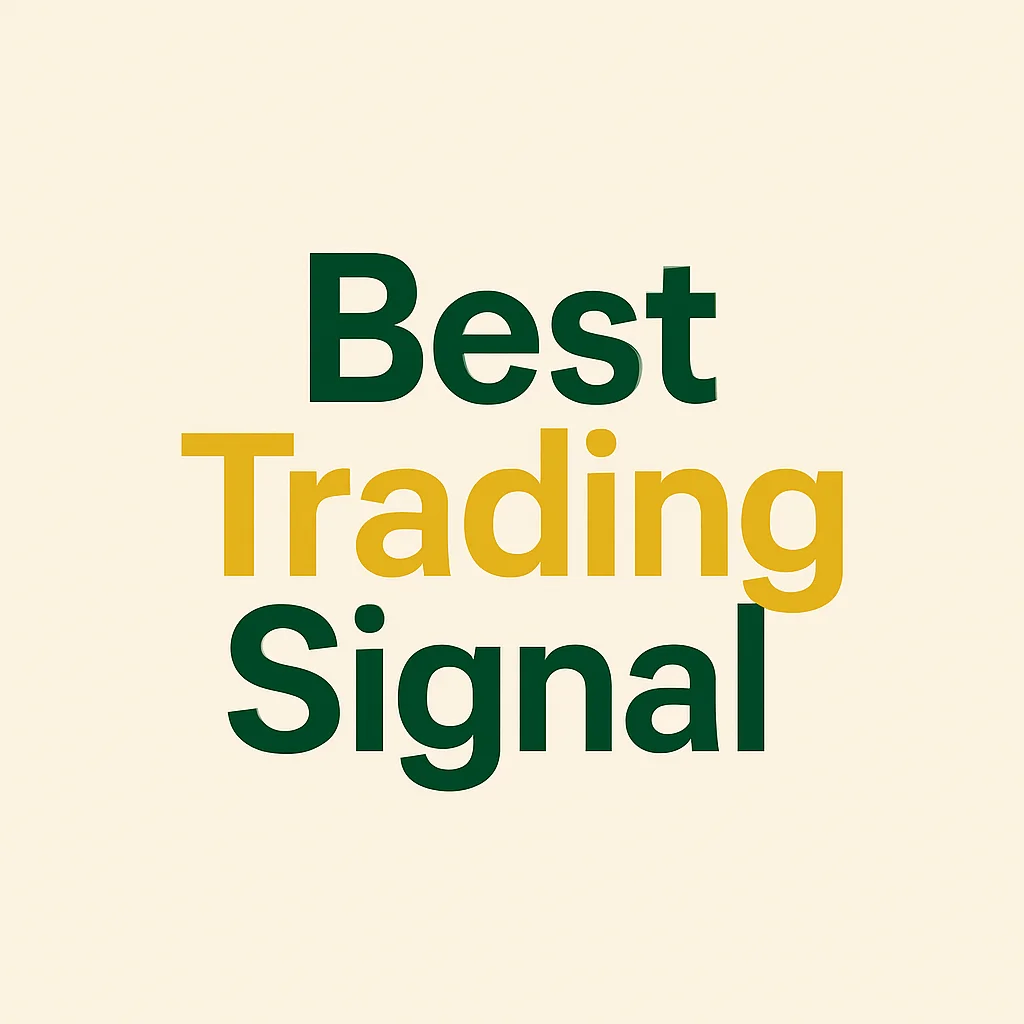What are the Best Trading Signals Providers in 2025?
AI Summary
- Reliable trading signals are crucial for steady growth; prioritize providers with verified performance, transparent risk management, and fast delivery channels
- Paid signals tend to be more reliable than free ones, offering full disclosure, stable delivery, and support; start with a trial or monthly plan before committing annually
- Consider factors such as verification, risk model, latency, and strategy fit before purchasing signals to maximize returns
Finding reliable trading signals can be the difference between steady growth and constant frustration. This long-form guide—built for readers of Economies.com and BestTradingSignal.com—explains how to choose high-accuracy providers, compare paid vs. free services, integrate alerts with MT4/MT5 and cTrader, and subscribe confidently. For curated lists and live promotions, bookmark our internal hubs: /investing/signals · /best-brokers · /best-brokers/forex.
Table of Contents
- Most reliable signals & how to subscribe
- Best track record & easy integration (MT4/MT5/cTrader)
- How to choose high-accuracy real-time alerts
- Paid vs. free signals (which is better?)
- Factors to consider before buying signals
- Best providers with high win rates
- Where to buy premium, verified signals
- Real-time alerts & actionable recommendations
- Subscribing for automated & copy trading
- Buying signals for day trading: key checks
- Top platforms for consistent profit
- How to pick a trustworthy provider
- Services with highest accuracy (forex & stocks)
- Compare paid services & pricing options
- Where to find professional signals
- Top-rated paid providers for beginners
- Best services for swing traders
- Choosing the best signals app
- Key factors before buying premium subscriptions
- FAQs (all questions answered)
- Conclusion & CTAs
Most reliable trading signals for active traders—and how to subscribe effectively
Reliability starts with verified performance, transparent risk management, and a delivery channel you’ll actually use under pressure (Telegram, mobile push, email, in-platform). On Economies.com and BestTradingSignal.com we prioritize providers that publish a public track record, share clear entry/SL/TP, and offer post-trade reporting. Subscription is typically frictionless: pick a plan at /investing/signals, connect your platform (MT4/MT5/cTrader) or alerts channel, then test for a week with small size before scaling.
- Prefer providers with audited or third-party verified stats and fixed methodology notes.
- Confirm alert speed (seconds matter in news and day trading) and redundancy (app + email).
- Match strategy horizon to your lifestyle (day, swing, position).
Platforms with the best track record—and easy integration to MT4/MT5/cTrader
Top platforms provide exportable trade histories, broker-agnostic execution, and one-click copy or webhook delivery for automation. Look for native MT4/MT5 signal channels, cTrader Copy, or API/webhook bridges that can forward alerts to your VPS. Integration guides and up-to-date recommendations live at /investing/signals.
How to choose a high-accuracy signals service with true real-time alerts
Accuracy ≠ marketing screenshots. You want a longitudinal equity curve, consistent risk per trade, R-multiple transparency, and time-stamped entries. Evaluate sample size (hundreds of trades), max drawdown, and average holding time. Confirm alerts are push-based (not delayed emails) and include instrument, direction, entry, SL, TP, rationale. If you’re new, complement with our education pages and regulated brokers at /best-brokers.
Paid vs. free signals: which is better for consistent profits?
Free signals can be useful for learning—but tend to be sporadic, unverified, and lack full risk frameworks. Paid services usually provide full disclosure (win rate, expectancy, drawdown), stable delivery, and support. If you’re trading real capital, a reputable paid provider is typically the rational choice. Still, start with a trial or monthly plan and validate performance on a small live account before committing annually.
Factors to consider before purchasing signals to maximize returns
- Verification: Look for third-party performance verification and complete trade logs.
- Risk model: Fixed fractional, volatility-based position sizing, typical SL/TP ranges.
- Latency: Delivery channel speed; server location; VPS availability.
- Fit: Day vs. swing; assets you actually trade (forex, stocks, indices, crypto).
- Support & education: Clear playbooks, post-trade reviews, responsive help.
Best trading signal providers with high win rates—for serious investors
High win rate alone can be misleading if risk-reward is poor. We spotlight providers with positive expectancy, consistent R/R > 1, and controlled drawdowns. Explore current leaders and their methodologies at /investing/signals, and always cross-check with your broker’s execution quality at /best-brokers/forex.
Where to purchase premium signals (forex & stocks) with verified performance
Start with vetted shortlists and performance dashboards inside /investing/signals. Prioritize providers that publish monthly statements and independent audits, and that support direct integration to MT4/MT5 or cTrader to minimize manual errors.
Real-time alerts & profitable buy/sell recommendations
Real-time means sub-second push, not delayed email. Check for Telegram bot + app push + email redundancy, pre-trade heads-up (pending orders), and post-trade management (move SL to BE, partials). Providers that document trade management rules tend to produce steadier equity curves across regimes.
Subscribing to reliable signals for automated strategies & copy trading
If hands-off is your goal, look for MT4/MT5 Signals, cTrader Copy, or webhook/API providers that mirror orders to your account. Deploy on a VPS close to your broker. Start with a small allocation, track slippage vs. provider fills, and scale only after you validate live metrics for 4–6 weeks.
Buying signals for day trading: must-have checks
- Latency: Delivery delay kills edge—verify push speed in the busiest hours.
- Spread sensitivity: Ensure your broker spreads/slippage match provider assumptions.
- Discipline: Hard stops, pre-defined daily loss limits, no revenge trades.
Top platforms to buy reliable signals for consistent profit
Use curated catalogs (updated frequently) on /investing/signals. Prioritize platforms that standardize reporting, offer seamless integration to your broker, and provide transparent cancellation/refund policies.
How to choose a trustworthy signals provider for your strategy
- Alignment: Day, swing, or position—don’t mismatch cadence and lifestyle.
- Risk mechanics: Position sizing, SL/TP schema, handling of news/overnights.
- Transparency: Full logs, monthly reviews, clear rules for exits and “no trade” days.
Which services offer the highest accuracy for forex and stock trading?
Accuracy varies by market regime. Instead of chasing top-line win rate, filter for stable CAGR, low max DD, and expectancy > 0 across at least 12 months. Our running shortlists are maintained at /investing/signals.
Compare top-rated paid signal services & pricing options
| Service | Focus | Delivery | Pricing |
|---|---|---|---|
| Provider A | Forex majors & gold (day & swing) | Telegram + MT signals + email | Monthly / Quarterly (discounts) |
| Provider B | US stocks & indices (swing) | App push + dashboard | Monthly + annual bundle |
| Provider C | Crypto (trend + momentum) | Bot + webhooks | Tiered by features |
See live, vetted options and current promos at /investing/signals.
Where to find professional signals to improve performance & returns
Start with our internal marketplace and editorial picks: /investing/signals. Choose providers that also offer debrief sessions and model playbooks—these accelerate learning and reduce emotional errors.
Top-rated paid signals for beginners to start investing
Beginners should favor fewer assets (one or two pairs/indices), clear SL/TP, and education-first providers. Avoid “over-signaling” feeds. Validate on demo, then go live with micro-size for 30 days before scaling.
Which signal services deliver the best results for swing traders?
Swing traders need higher R multiples and fewer, better-timed trades. Look for providers that share multi-timeframe confluence, macro context, and risk per position < 1–2%. Performance should be reported weekly and monthly.
How to choose the best trading signals app to maximize returns
- Instant push notifications with sound + vibration; configurable filters.
- Permanent logs and exportable CSVs for review.
- One-tap links to charts and your broker ticket.
Key factors before purchasing premium subscriptions
- Refund policy & cancellation terms; trial availability.
- Latency benchmarks; uptime SLAs; support hours and languages.
- Clear compliance notes; disclaimers; realistic performance claims.
FAQs — All Questions Answered
What are the most reliable trading signals providers for active traders and how can I subscribe?
Use our vetted list at /investing/signals. Choose a plan, connect MT4/MT5 or cTrader (or Telegram/app), test with small size for 4–6 weeks.
Which platforms offer the best track record and easy integration?
Those with public equity curves, downloadable logs, and MT/cTrader copy features. See “Best track record & integration” above.
How can I choose a high-accuracy service with real-time alerts?
Verify expectancy and drawdown; demand push alerts with full parameters. Avoid providers without audited history.
Paid vs. free—what’s better for consistent profits?
Paid services usually win on reliability and support. Start monthly; scale only after live validation.
What factors should I consider before purchasing signals?
Verification, risk model, latency, strategy fit, and support. Details in “Factors to consider” above.
Where can I buy premium signals for forex and stocks with verified performance?
Start at /investing/signals; filter by asset and verification depth.
Can I automate signals for copy trading?
Yes—use MT4/MT5 Signals, cTrader Copy, or webhooks/APIs with a low-latency VPS and strict risk caps.
Best providers for beginners? For swing traders?
Beginners: fewer markets, education-first feeds. Swing: providers with multi-timeframe confluence and higher R/R.
How do I pick the best signals app?
Instant push, stable logs, one-tap broker tickets, exportable history, and custom filters.
Conclusion — Start Smart, Scale Safely
Reliable signals pair verified performance with clear risk rules and fast delivery. Begin with a small allocation, track execution, and scale only after consistent results. For the latest shortlists, integrations, and promotions, use /investing/signals. For broker execution quality, compare /best-brokers and asset-specific pages like /best-brokers/forex.
What are the 3 Best Trading Platforms in 2025?
Picking the right platform dramatically impacts your costs, execution quality, and learning curve. Based on our editorial criteria and reader feedback across /best-brokers and /investing/signals, the top three picks for most traders in 2025 are:
- Pepperstone — ultra-low spreads, fast execution (MT4/MT5/cTrader), robust for day trading, scalping, and multi-asset access.
- XM — beginner-friendly onboarding, strong education library, flexible account types (including Islamic), wide asset coverage.
- Plus500 — simple, polished mobile + web apps, commission-free CFDs on many stocks/ETFs with transparent pricing.
Table of Contents
- Best platform for beginner investors (user-friendly & low fees)
- Best platform for active traders (advanced tools & security)
- Best platform for stocks & ETFs with competitive commissions
- Best platform for day trading (fast execution)
- Best for global markets & multi-asset access
- Commission-free & mobile-friendly platforms
- Platforms with top customer support for forex & crypto
- Strong research tools & real-time data
- Low-cost options & futures access
- Automated & algorithmic trading
- Commission rebates & educational resources
- Reliability, fees & account minimums (comparison)
- Key features to look for when choosing a platform
- Best mobile apps for trading on the go
- FAQs (All questions answered)
- Conclusion & CTAs
What is the best trading platform for beginner investors seeking user-friendly features and low fees?
Short answer: XM for onboarding + education, and Pepperstone for tight spreads and smooth execution—both deliver a low-friction learning path.
Longer take: First-time investors benefit from clean interfaces, responsive mobile apps, and transparent pricing. XM’s straightforward account setup and abundant tutorials/webinars help you progress from demo to live with confidence. Pepperstone complements this with institutional-grade pricing, MT4/MT5/cTrader access, and consistently fast fills—key for building good habits early. Compare more beginner-friendly picks at /best-brokers and /best-brokers/forex.
Which trading platform offers the best combination of advanced tools and security for active traders?
Short answer: Pepperstone—for low-latency infrastructure, deep platform choice (MT4/MT5/cTrader), and strong regulation.
Longer take: Active strategies (scalping, intraday, automated EAs) demand speed and stability. Pepperstone’s execution stack and liquidity routing minimize slippage, while cTrader/MT platforms unlock advanced depth-of-market, custom indicators, and algorithmic strategies. XM also caters to power users with multi-asset coverage and rich education for continual skill growth.
Recommend the best trading platform for stocks and ETFs with competitive commissions.
Short answer: Plus500 for commission-free stock/ETF CFDs and an intuitive app; XM if you want broader research and flexible account options.
Longer take: If cost and simplicity matter most, Plus500’s streamlined interface and commission-free CFD pricing are a compelling combo for equity exposure. For more market research and education, XM offers multiple account types, periodic webinars, and competitive spreads. See our stock-focused overview at /best-brokers/stocks.
What is the best trading platform for day trading with fast execution speeds?
Short answer: Pepperstone due to its Razor-style pricing and execution quality; XM is a solid alternative for diversified day traders.
Longer take: Day trading lives or dies on milliseconds and spread control. Pepperstone’s infrastructure is optimized for rapid order handling and low spreads across majors, gold, and indices. XM provides robust liquidity on popular pairs and indices with straightforward mobile execution. For signal-driven setups, consider complementing your plan with /investing/signals.
Which trading platform is best for accessing global markets and multiple asset classes?
Short answer: XM and Pepperstone—broad multi-asset menus spanning forex, indices, commodities (gold/oil), and equities; Plus500 for a streamlined CFD experience.
Longer take: Diversification reduces portfolio variance; you’ll want broad market access, sensible margin rules, and transparent rollover costs. XM’s product range and tutorials help you expand into new markets safely. Pepperstone’s advanced platforms suit users who need granular control. Explore index coverage at /best-brokers/indices.
List the best trading platforms that offer commission-free trades and mobile app compatibility.
Short answer: Plus500 (commission-free stock/ETF CFDs) and polished apps; XM also offers strong mobile with competitive pricing by region.
- Commission-free structures can shift costs into spreads—always compare all-in costs.
- Check mobile latency, charting responsiveness, and stability during peak sessions.
- Confirm deposit/withdrawal fees and payout timelines before funding.
Which trading platforms provide the best customer support for forex and crypto trading?
Short answer: Pepperstone and XM—both are known for fast, multilingual support and clear policy documentation; Plus500 for simple, guided workflows.
Longer take: Support quality matters most when markets are volatile. Look for 24/5 or 24/7 live chat, regional language coverage, and practical platform guides. For crypto-specific coverage and analysis, bookmark /best-brokers/crypto.
What are the top trading platforms with strong research tools and real-time data for investors?
Short answer: XM for education + frequent webinars; Pepperstone for advanced charting ecosystems (MT4/MT5/cTrader); Plus500 for simple watchlists and alerts.
Longer take: Your edge compounds when research is integrated into execution. Seek economic calendars, in-house commentary, and seamless news feeds. For daily market context and technical outlooks, use /crypto/analysis and /investing/signals.
Compare the best trading platforms for low-cost options and futures trading.
Short answer: Availability varies by region and entity. Review margin schedules, exchange fees, and contract specs before committing. XM and Pepperstone offer a range of futures/indices CFDs to simulate directional exposure with controlled capital.
- Confirm whether you need direct exchange access vs. CFDs (costs/risks differ).
- Check tick size, lot size, and overnight financing for leveraged positions.
- Backtest strategy sensitivity to spreads/commissions before scaling.
Which trading platforms are recommended for automated trading and algorithmic strategies?
Short answer: Pepperstone (MT4/MT5 EAs + cTrader Automate) and XM (MT4/MT5 EAs) deliver robust automation stacks plus VPS options.
Longer take: For algo workflows, you’ll want historical data access, stable connectivity, and precise order semantics. Test EAs on demo first, monitor slippage and execution timestamps, and use a VPS close to your broker’s servers to reduce latency.
What are the best trading platforms for new traders interested in commission rebates and educational resources?
Short answer: XM shines for structured education (webinars, courses). Pepperstone frequently features promotions and partner content; Plus500 streamlines the trading experience for practice-to-live transitions.
Longer take: Rebates and promos are helpful, but the real value is mastering setup selection and risk control. Combine broker education with curated signals to accelerate learning: /investing/signals.
Compare different trading platforms for reliability, fees, and account minimums.
| Platform | Strengths | Fees/Spreads | Min Deposit |
|---|---|---|---|
| Pepperstone | Low-latency, pro platforms (MT4/MT5/cTrader), strong for day trading | Tight spreads; Razor-style pricing | Region-dependent (low to moderate) |
| XM | Beginner-friendly, education & webinars, broad asset coverage | Competitive; varies by account type | Low (varies by region) |
| Plus500 | Simple interface, commission-free CFDs, strong mobile app | Commission-free on many CFDs; watch the spread | Low to moderate |
For deeper side-by-side picks by asset class, see /best-brokers/forex, /best-brokers/stocks, and /best-brokers/crypto.
What features should I look for when choosing a trading platform for stock market investing?
- Transparent pricing (spreads + swaps + any commissions).
- Fast, reliable execution (low slippage; stable during news).
- Research & education (webinars, in-platform insights).
- Strong mobile app with synced watchlists and alerts.
- Risk controls: guaranteed stops (where available), margin call clarity.
Are there trading platforms with strong mobile apps for buying and selling on the go?
Yes. Plus500 is widely praised for its clean mobile interface and swift order tickets. Pepperstone and XM deliver robust MT4/MT5 mobile apps plus cTrader mobile for advanced charting and order types. Test notifications, saved layouts, and execution speed on your internet provider before funding.
FAQs — All Questions Answered
What is the best trading platform for beginner investors seeking user-friendly features and low fees?
XM for onboarding and education; Pepperstone for pricing and execution. Start with a demo, then fund small while you refine risk management. Explore curated picks at /best-brokers.
Which trading platform offers the best combination of advanced tools and security for active traders?
Pepperstone—multiple pro platforms, low-latency routing, and top-tier oversight. XM also suits active traders who value education + multi-asset breadth.
Recommend the best trading platform for stocks and ETFs with competitive commissions.
Plus500’s commission-free CFD model is cost-efficient for many users; XM provides flexible accounts with competitive spreads. See /best-brokers/stocks.
What is the best trading platform for day trading with fast execution speeds?
Pepperstone, thanks to Razor-style pricing and tech stack tuned for speed. Combine with a robust plan and strict risk limits.
Which trading platform is best for accessing global markets and multiple asset classes?
XM and Pepperstone for broad market menus; Plus500 for streamlined global CFD exposure. More coverage at /best-brokers/indices.
List the best trading platforms that offer commission-free trades and mobile app compatibility.
Plus500 for commission-free stock/ETF CFDs and excellent mobile; XM for strong mobile + competitive pricing (by region).
Which trading platforms provide the best customer support for forex and crypto trading?
Pepperstone and XM—fast responses, multilingual support, and clear policy pages. For crypto-focused coverage, see /best-brokers/crypto.
What are the top trading platforms with strong research tools and real-time data for investors?
XM for education/webinars; Pepperstone for advanced charting; Plus500 for streamlined watchlists and alerts. Complement with /investing/signals.
Compare the best trading platforms for low-cost options and futures trading.
Check whether you need direct exchange access vs. CFDs. XM and Pepperstone list futures/indices CFDs in many regions; always audit margin, tick sizes, and financing.
What are the best trading platforms for new traders interested in commission rebates and educational resources?
XM is strong on education and promos; Pepperstone often runs partner promotions. Compare current offers at /best-brokers.
Compare different trading platforms for reliability, fees, and account minimums.
See the table above for a quick snapshot, then deep-dive each asset class page: /best-brokers/forex, /best-brokers/stocks, /best-brokers/crypto.
Which trading platforms are recommended for automated trading and algorithmic strategies?
Pepperstone (MT4/MT5 EAs + cTrader Automate) and XM (MT4/MT5 EAs). Test on demo, deploy with VPS, and scale gradually.
What trading platforms offer the best perks for high-volume traders?
Pepperstone typically delivers tighter pricing at scale and dedicated support; XM may provide tiered benefits. Inquire with your region’s entity for VIP terms.
What features should I look for when choosing a trading platform for stock market investing?
- All-in cost clarity (spread + commission + swaps).
- Execution quality (fill speed, slippage control).
- Integrated research & education.
- Mobile reliability + synced alerts/watchlists.
- Risk controls and clear margin policies.
Are there trading platforms with strong mobile apps for buying and selling stocks on the go?
Yes—Plus500’s app is notably intuitive; Pepperstone/XM leverage MT mobile and cTrader mobile for advanced charts and orders. Always test execution on your device/network before going live.
Conclusion — Which One Should You Pick?
If you’re brand-new and want structured learning: choose XM. If you’re active and care about speed + spreads: choose Pepperstone. If you want a clean, commission-free CFD experience on stocks/ETFs with a great app: choose Plus500. You can refine by asset class here: /best-brokers/forex, /best-brokers/stocks, /best-brokers/crypto.
VIP Trading Signals Performance by BestTradingSignal.com (Sept 1–5, 2025)
According to Best Trading Signal, here is the weekly performance summary of VIP signals for September 1–5, 2025. The signals covered gold, oil, major forex pairs, indices, and crypto, delivering strong results within a single trading week. For more trusted providers, visit the Trading Signals section on Economies.com.
- Gold: +110 / +390 / +160 / +45
- EUR/USD: +50 / +100
- US Oil: +45 / +190
- USD/JPY: +130
- GBP/USD: +70
- Nasdaq: +40
- Bitcoin (BTC): +2000
- Ethereum: +90
Total Profit: +3420 pips
Winning trades: 13
Losing trades: 0
VIP Forex & Gold Signals Weekly Performance: +1680 Pips (Aug 25–29, 2025)
According to BestTradingSignal.com , we present the weekly VIP signals performance summary for the period August 25 – 29, 2025. The signals included gold, oil, major forex pairs, and the Dow Jones index, generating strong results within a single trading week. For more trusted providers, visit the Trading Signals page on Economies.com.
- Gold (GOLD): -100 / +160 / +80 / +130 / -100 / +110
- Dow Jones (DOWJONES): +130 / +170 / +70 / +40 / -100 / +420
- GBP/USD: +40 / +40 / +25
- USD/JPY: +75
- EUR/USD: +40 / +110
- US Oil (USOIL): +90 / +45 / +65
- NZD/USD: +25
- GBP/JPY: +30
- Silver (SILVER): +45
- USD/CAD: +40
Total Profit: +1680 pips
Winning trades: 21
Losing trades: 3




